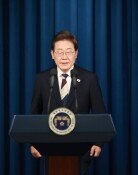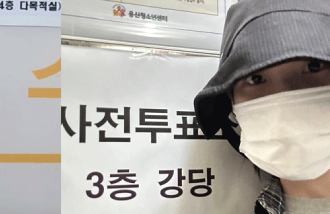Toffler Says Korean Education System Needs Reform
Toffler Says Korean Education System Needs Reform
Posted June. 04, 2007 06:16,
Samsung Group chairman Lee Kun-hee said on June 1, The Korean education system, which only allows uniform standards, needs reform if Korea is to nurture R&D capacity and talent. Although he did not elaborate on what those uniform standards were, it was easy to recognize that he was implicitly referring to the two most controversial topics in Korean education today: the standardization of all high school education and Koreas rigid university entrance system.
The current government is tightening regulations regarding the nations foreign language, independent, and science high schools, which were originally established to make up for the weaknesses in the standardized education. Worse yet, it is also threatening the independence of universities, insisting that they select students based mostly on their school records, not on what the schools deem as necessary criteria. In this regard, it is no wonder Lee is deeply concerned about the Korean education system and its prospects.
Futurist Dr. Alvin Toffler, currently visiting Korea, also pointed out the need for diversification in educational systems and curricula instead of sticking to the old system, which is long a legacy of the past industrial age. The government, clinging to the myth of the equality code and hampering diversification, should listen to Dr. Tofflers words attentively.
Dr. Toffler further argued, What Korea needs most right now is to get rid of the evils of bureaucracy and to push for innovations in education. Korean education is in a way a victim of bureaucratic meddling, with the government nagging at private schools all the time curtailing their independence and interfering with how universities should select their students. Unless the Korean education is freed from the evils of bureaucracy, it will remain the way it has been in the industrial age.
According to a study conducted by the World Economic Forum last October, Korea ranked 38th, right behind Kenya, in terms of how well a national educational system adapted to the new economic landscape of the 21st Century. Korea was way behind Singapore (second), Hong Kong (seventh) and Taiwan (ninth), and even below India, which came in 25th.
The official OECD analysis on national education policies (2005-2006) showed that policies in advanced nations have institutionalization of evaluation and openness at the heart. The latest trend in the education market is to respond more actively to demand of consumers by boosting competitiveness and maintaining balance through open information, such as students and teachers respective performances, and the results of university assessment. Also other countries diversify school management and gradually increase the R&D capacity of the nation by reflecting the needs of the industries to college education.
Unfortunately, the Roh governments education policies only meet the needs of some selfish education labor unions, not the requirements of an advanced educational system. Something should be done about our education and economic policies.



![“국힘 41% 득표가 졌잘싸? 되레 독 될수도”[정치를 부탁해]](https://dimg.donga.com/c/138/175/90/1/wps/NEWS/IMAGE/2025/06/04/131745994.1.jpg)



